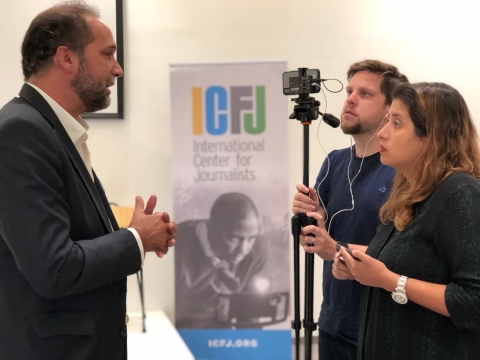
News publishers in Argentina and Chile are taking their video strategies to the next level - and sparking greater audience engagement and web traffic in the process - with support from the Facebook Journalism Project Digital Video Accelerator.
A total of 22 news publishers each received a USD25,000 grant and six months of mentoring from digital video experts as part of the Accelerator. The Facebook Journalism Project teamed up on it with the International Center for Journalists (ICFJ), which administered the grants and provided mentors for the newsrooms.
In all, publishers produced more than 100 videos, and reported increases in web traffic of up to 150 percent. They also saw significant growth in engagement and video views.
“Video is the language of our time - it is the language of social media,” said Alba Mora Roca, executive producer at AJ+español and one of the program’s mentors.
Publishers worked closely with mentors on everything from improving the technical aspects of video production to learning how to structure teams for better collaboration. They came together earlier this year in Buenos Aires to showcase the best of their videos, and shared their thoughts on the challenges they faced along the way.
"The idea of this part was to create a common ground of knowledge around how to succeed with a digital video strategy for a news publisher," said Julieta Shama, Strategic Media Partnerships at Facebook.
Among the teams presenting were La Voz, el Clarin, La Gaceta, and Telefe Noticias from Argentina, and Upsocl, Radio Biobio and Mega Noticias from Chile.
Watch the video, and learn more about the Accelerator.
Johanna Carrillo is the ICFJ Deputy Vice President of Programs and is responsible for ICFJ's Innovation and Specialized Reporting programs.
Julieta Shama manages relationships with news media partners on behalf of Facebook and Instagram for Argentina and Chile.